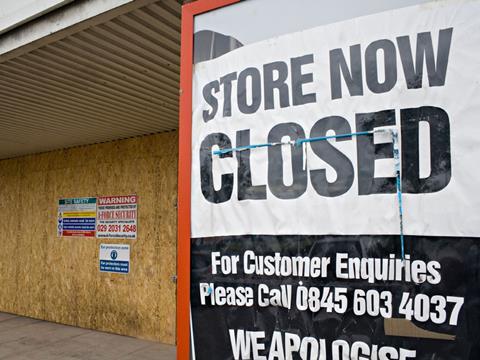
Top story
Heightened restructuring activity has seen the half-year net reduction in stores on Britain’s high streets hit record levels according to research by the Local Data Company (LDC) and PwC.
The first half of 2019 saw almost twice as many store closures (16 each day) as openings (9 each day) – the highest level of net closures since the survey began in 2010.
Some 1,634 stores opened and 2,868 stores closed over the period, leading to a net decline of 1,234 stores compared with a net decline of 1,123 in the first half of 2018.
On a sector by sector basis, only 15 out of 96 sectors showed a net growth in store numbers, and all but two grew by only a single digit number of outlets: takeaways with a net increase of 26 outlets, and sport and health clubs with a net increase of 17.
Meanwhile, the biggest net declines were seen amongst fashion retailers (-118), restaurants (-103), estate agents (-100) and pubs (-96).
There was a slight increase in store openings in the first half of 2019 compared with last year from 1,569 in 2018 to 1,634 in 2019, potentially indicating some renewed optimism amongst high street operators.
Lisa Hooker, consumer markets leader at PwC, said the record net decline in store numbers in the first half of 2019 showed there had been no let-up in the changing ways that people shopped and the cost pressures affecting high street operators.
“While retailers need to keep investing to make sure their stores and propositions are relevant to today’s consumers, it’s also critical that all stakeholders find ways to ease the burden on operators, keep investing in the high street, and encourage new and different types of operators to fill vacant space.
“The good news is that there are green shoots, as new entrants are entering even embattled sectors such as fashion. Our research tells us that consumers still want to spend their money in well located and invested stores and leisure venues on the high street.”
However, as consumers continued to change the way they shopped and spent their leisure time, the reality was that fewer high streets may be needed in the future, she added.
Lucy Stainton, head of retail and strategic pat the LDC, said: “One of the most striking things about this latest Local Data Company and PWC analysis is the level of market churn identified in such a short space of time”.
While the overall net change number, a loss of 1,234 occupied units in only six months, was significant, the level of openings and closures activity beneath this was “hugely notable” as the industry continued to re-set.
“In our experience, retailers are being that much more cautious and risk averse as far as both planning for new store openings and in making decisions across their existing property portfolios.
“The reality is that UK retail space will continue to look very different over the coming years, and this is demonstrated by the sheer number of stores opening and closing on an ongoing basis,” said Stainton.
Morning update
AIM-listed Science in Sport (SIS) has appointed James Simpson chief financial officer at the premium performance nutrition company.
Simpson, an experienced finance executive with a track record in the e-commerce and consumer sectors, will join on 26 September from AIM-listed fashion retailer ASOS, where he was operational finance director.
He has previously held senior financial roles at Britvic and Tesco.
Simpson qualified as an accountant with PwC in 1998. His early career was in audit at PwC after which he worked in finance roles at Cadbury Schweppes, L’Oreal and Royal Dutch Shell before joining Tesco.
He has also been a longstanding non-executive director at the arts charity Fevered Sleep.
His appointment follows the company’s announcement earlier this summer of Elizabeth Lake’s plan to leave her role of chief financial officer on 10 September.
John Clarke, Science in Sport’s non-executive chairman, said Simpson brought “a wealth of financial experience” gained in the e-commerce and consumer sectors, particularly in the planning and management of international growth.
“We look forward to working with James as we continue to deliver our international growth strategy.”
Biffa, the UK sustainable waste management company, is continuing to make advances in building a new PET bottle recycling facility, it said in a pre-close trading update.
Trading in the first half of the year had been in line with the board’s expectations, it said.
Its “collections” division would deliver “solid” revenue and profit growth.
The “industrial & commercial” business continued to grow both organically and through acquisitions, it said, and the “resources & energy” division would also deliver returns in line with the group’s expectations.
On the markets this morning, the FTSE 100 rose 0.4% in early trading to 7,296.8pts.
Early risers include Premier Foods (PFD), up 5.2% to 33.7p, McColl’s Retail Group (MCLS), up 3.6% to 48p, Naked Wines (WINE), up 2.2% to 258.53p, Hotel Chocolat Group (HOTC), up 1.9% to 379.7p and PZ Cussons (PZC), up 1.7% to 213p.
Fallers so far today include Hilton Food Group (HFG), down 1.4% to 976.7p, following yesterday’s results, SSP Group (SSPG), off 1.2% at 668.2p, AG Barr (BAG), down 0.5% to 559p and Compass Group (CPG) slipped 0.5% to 1,980.5p.
Yesterday in the City
The FTSE 100 closed up 0.4% at 7,268pts.
The retail industry has bucked the overall employment trends in the UK with a decline of 57,000 jobs in the second quarter, the latest Office for National Statistics data shows.
This was the fifth consecutive quarter of decline for retail employment. The UK economy as a whole enjoyed a 463,000 jobs hike compared with the same period a year ago.
British Retail Consortium economist Liliana Danila, said the change in retail employment was a result of changing shopping habits, weak consumer demand and rising industry costs.
But while there were fewer jobs overall in retail, the technological revolution had also meant that new roles were being created in fields such as Artificial Intelligence, digital marketing and data science.
“Retail remains the largest private sector employer in the UK, so it is vital that government supports the industry to make the necessary investment to adapt to changing consumer trends.
“Retail continues to play a crucial role to the UK economy, providing job opportunities across the whole of the UK, including less well-off areas, offering millions of people local jobs and flexible hours,” said Dr Danila.
The business rate system held back investment, reduced productivity and increased regional disparities.
“Currently, retail accounts for 5% of the economy, yet pays 10% of all business taxes and 25% of business rates – it is simply unsustainable. The government must address the much needed reforms to this broken tax system before more jobs are lost and stores are closed,” she urged.
Sainsbury’s (SBRY) announced Jim Brown had now begun his new role as chief executive of Sainsbury’s Bank following regulatory approval of his appointment to the post.
Brown joined as chief executive designate on 10 June and worked with former chief executive Peter Griffiths for a handover period. Griffiths had now left the business, Sainsbury’s said.
Market fallers included Just Eat (JE) which dived 6.6% to 710p, Associated British Foods (ABF) fell 3.1% to 2,234p. SSP Group (SSPG), dipped 2.9% to 676p and Compass Group (CPG) closed down 2.2% to 1,999p.
Stocks on the up included McBride (MCB), up 5.1% to 52p, Sainsbury’s (SBRY) delivered a 3.5% uplift to close at 207.8p, Marks and Spencer Group (MKS), climbed 2.6% to 201.1p and British American Tobacco (BAT) rose 2.4% to 2.964p.







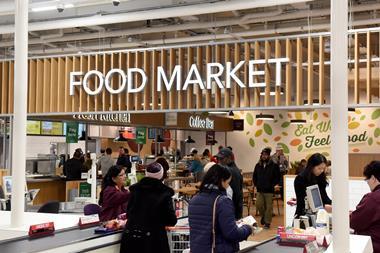



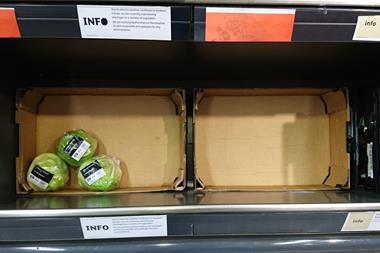

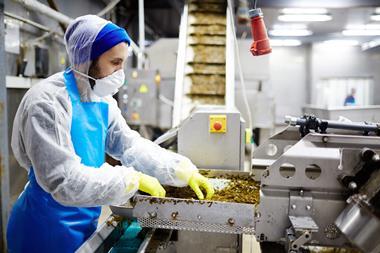

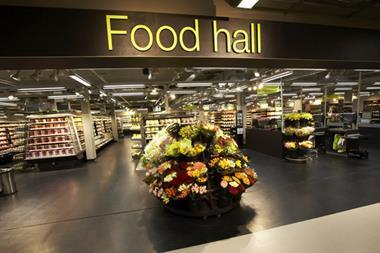



No comments yet